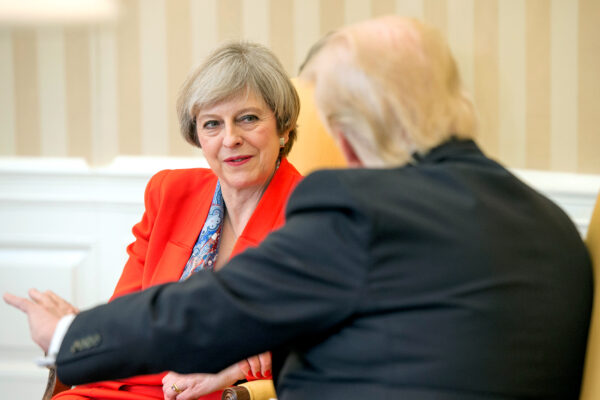
Donald Trump’s first weeks as president have been so shambolic, it is almost hard to believe he can really be so incompetent.
Indeed, some refuse to. From his misguided attacks on the judiciary to his botched diplomacy with China, these are observers who read masterplans into Trump’s puerile behavior.
Please don’t.
If there is one thing we have learned about Trump, it’s that he is self-absorbed and ill-tempered. He had no political experience before seeing the presidency and now surrounds himself in the White House with sycophants and zealots, as opposed to critical thinkers and professionals.
The more likely explanation for his mistakes is that they are just that: mistakes.
Crazy like a fox. Or just crazy?
Let’s take Trump’s war on the judiciary.
Chris Cillizza and James Pindell suggest in The Washington Post and The Boston Globe, respectively, that Trump may have either orchestrated or exploited leaked comments from his Supreme Court nominee, Neil Gorsuch, in order to improve his chances of being confirmed by the Senate.
Gorsuch called a tweet in which Trump disparaged the judges who suspended his Muslim travel ban “disheartening”.
The theory is that Trump wanted those remarks to get out, so that Gorsuch would look moderate by comparison and Senate Democrats as well as skeptical Republicans would be more inclined to vote him on the Supreme Court.
Dahlia Lithwick doubts this “crazy-like-a-fox” theory, writing for Slate that Trump has now tied his nominee to a larger debate about the rule of law, which can’t be good for Gorsuch either way.
But Lithwick also suspects there is more to Trump’s angry tweets. She infers an attempt to undermine Americans’ faith in the judiciary in order to pave the way for a stronger executive.
I see the danger — and Trump’s authoritarian admirers are clearly pining for it — but from everything Trump has said and done so far, it seems more likely that he is simply unaware of the limitations of his office.
Politico recently reported that Trump was “surprised” to discover he could not run the federal government like one of his businesses. That doesn’t sound like a man with a devious plan to overturn the constitutional order of the United States.
Haphazard diplomacy
Then there is Trump’s seemingly haphazard diplomacy with China.
Days after being elected in November, he took a phone call from the president of Taiwan, angering China, which regards the island as a renegade province.
The conventional wisdom was that an ignorant Trump had blundered his way into a diplomatic incident.
However, his apologists maintained he was leveraging the “One China” policy — under which the United States do not recognize Taiwan — to get better terms from the Chinese, for example on trade. A few days later, Trump made the same claim himself.
The White House’s readout from Trump’s first phone call with the president of China, Xi Jinping, would appear to contradict that theory. It reads: “President Trump agreed, at the request of President Xi, to honor our ‘One China’ policy.”
So much for that.
Advantage Trump?
Not so fast, writes Walter Russell Mead in The American Interest. The president never revised the “One China” policy.
But by raising the question, Trump is now able to get credit for reaffirming something he wasn’t ever going to change.
Mead also argues that the timing of the call was significant, happening on the eve of the Japanese prime minister’s visit to Washington DC:
What Mead leaves out is that three Chinese warships violated Japan’s territorial waters around the Senkaku Islands last week, just two days after Trump’s defense secretary, Jim Mattis, visited Tokyo and reiterated that the contested islets in the East China Sea are covered by America’s security pact with Japan.
Mead also doesn’t mention that a Chinese surveillance aircraft nearly collided with an American P-3 Orion over the South China Sea that same day. Naval officials described the encounter as “extremely rare” and “unsafe”.
If we should read anything into the timing of China’s actions, surely sailing three warships into the waters of an American ally and almost crashing one of their aircrafts into an American plane speak louder than a phone call?
It doesn’t feel like China has been intimidated. Rather, it looks like Trump caved in the face of Chinese saber rattling.
